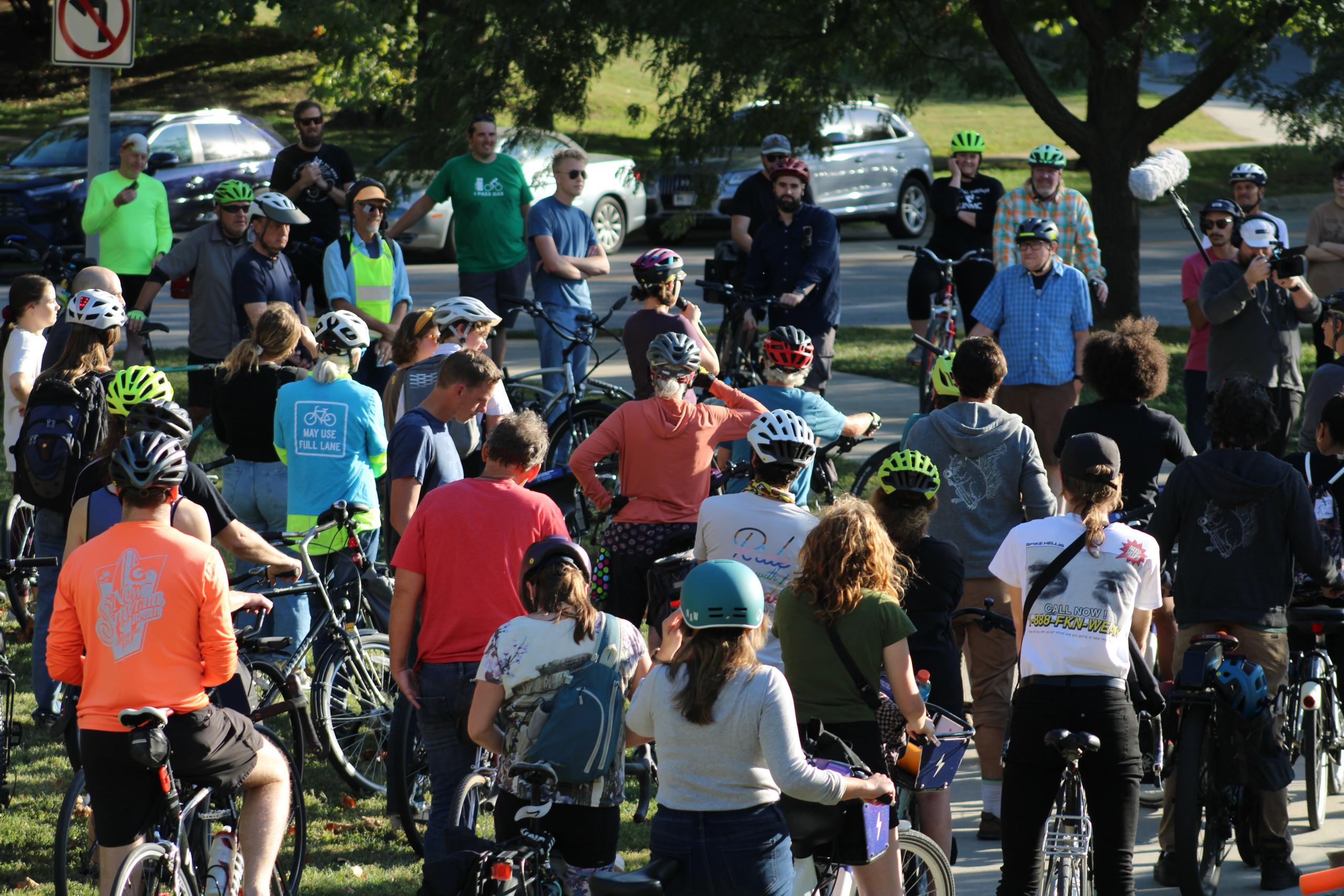Our November 30 Transportation Coffee Chat included a visit from Jim Vokal, the soon-to-be Executive Director of the Platte Institute for Economic Research. We invited him to join us mainly to discuss the Platte Institute’s recent report on transit in Omaha. (Mode Shift’s response to the report is here.) The conversation was engaging! About 12 people attended.
Jim started the conversation by saying that it seemed our respective groups shared the same goal to increase choice ridership on Metro. The Platte report, he said, focuses on increasing ridership and efficiencies and on funding issues, including calling for reducing subsidies for Metro from government taxes. The cost of a one-way fare is $1.25; the cost to Metro is $7 per rider. They would like to see an increase in the one-way fare to $1.75 to create a more equitable cost structure.
Others in the group noted that Metro did just increase their fare structure for transfers and express buses already charge $1.50 for a one-way ride. Metro is also in the process of doing a regional transit plan with increasing “choice” ridership as a future goal. Of course, there is a constant tension between serving those who need to ride the bus and those who want to ride the bus; transit agencies have to determine how best to meet these populations. (For more on these choices and how they can influence transit planning, check out Jarrett Walker’s book Human Transit.)
Discussion ensued about ways to make transit more appealing to choice riders and the context that puts limitations on this, such as relatively low-cost and plentiful parking in Omaha and the challenges and costs of serving low-density areas. Someone noted that data show younger people want to ride transit and are driving less in general; this speaks to the need to improve transit now.
Another person noted that the focus on transit subsidies seems to be “peanuts” compared to the costs of other transportation investments, such as for highways. (Government expenditures for all transportation were about $295 billion in 2009; transit represented about 22% of this—for the data go here.) Autos are increasingly subsidized as well since the federal gas tax is not keeping pace with costs. Another person noted that 90% of funding from Omaha city bonds in the past several years is going to widen streets west of Hwy 680. We should examine the cost per driver for widening projects. We should also examine the cost of long term maintenance. Cars represent the value of freedom but a good transit system can do the same; they both have costs.
Jim asked for specific ideas for the Platte Institute to study. The group listed a few:
- Local financing of roadway; costs of developing roadway development and maintenance.
- Cost of parking to the public; how much subsidized.
- Compare public subsidies across modes.
Jim indicated that the Platte Institute is currently partnering with other organizations to examine what effect privatization would have on the Nebraska Department of Roads. It will be interesting to see the results of this study.
Thanks again to Jim Vokal and the Platte Institute for the great conversation! The next Coffee Chat will be January 25, 8-9am with Will Sharp to discuss the Chicago to Omaha high speed passenger rail study.


